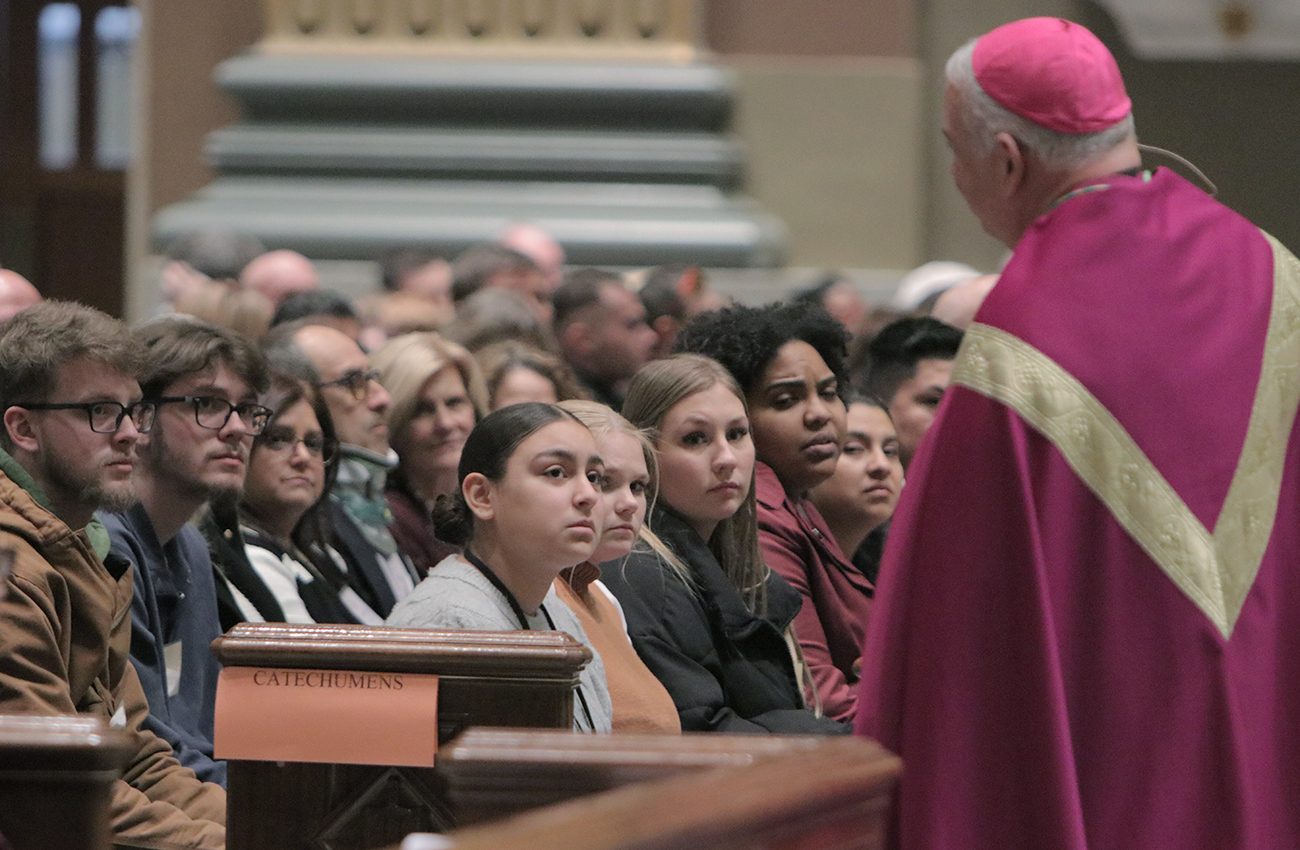In less than the time it takes to preach a Sunday homily, parishioners can help advise priests and deacons about preaching effectively, if not briefer.
The new Catholic Preaching Institute at St. Charles Borromeo Seminary is rolling out a survey for all parishioners that will take only 10 minutes to complete according to Father Thomas Dailey, OSFS, John Cardinal Foley Chair of Homiletics & Social Communications at the seminary.
He leads the institute that last fall received a $1.2 million grant from Lilly Endowment, Inc. to implement programs for more effective preaching in Catholic parishes.
According to a 2019 Pew Research Center study, the median Catholic homily clocks in at 14 minutes, though Pope Francis has advised that homilies for the Sunday liturgy not exceed eight to 10 minutes.
The survey is available on the seminary’s website now through Friday, March 22.
It asks the faithful to “consider your own experience of listening to homilies over the past year or so,” the survey reads.
“We realize that you may hear from many different preachers (pastors, vicars, residents, visitors, and deacons). Consider all of them! The evaluation we ask for refers to your experience as a whole – in general, in common, ordinarily – to give us an overall picture of the preaching you have heard.”
Father Dailey hopes the survey becomes one of the largest of its kind, and some 10,000 responses will be collected, especially from the under-represented demographic of young Catholics ages 18 to 25.
Toward that end, Father Dailey hopes faithful will share the survey with friends and family members.
The survey “is crucial to understanding the need … to improve preaching,” and what is needed to do so, he said.
The survey results will be used anonymously by the institute to design its future programs and public events for helping priests and deacons to improve their homilies.
The homilists themselves – pastors who have been invited to complete a shorter survey on homilies in their parishes – say they desire feedback from parishioners about the preaching they hear, according to Father Dailey.
“So we hope that folks will be honest in their estimation of their experience” of listening to Catholic preaching in their parishes, he said.
The five-page survey is available in English and Spanish. Besides three demographic questions (respondent’s age, years at one’s parish and frequency of Mass attendance) are joined by two geographic questions and 14 topics that pose five choices for each response.
Examples include:
“The homilies are relevant to today’s world, bringing the light of God to bear on real situations in my life;”
“The homilies show the preacher’s closeness to me through his tone of voice, eye contact, gesturing, and overall manner of presence.”
The choices for response include: Strongly agree; Disagree; Neutral; Agree; Strongly agree.
The last survey topic – “Overall, how would you rate the quality of the homilies you hear?” – offers the responses: Terrible; Below average; Average; Above average; Terrific.
In the only subjective question of the survey, respondents are asked to name one “truly compelling preacher in this Archdiocese” by selecting a name from a drop-down menu.
The institute, in a preamble to the survey, says it “aims to bring about a homiletic revival” in the archdiocese, and the first way to do that is “to better understand the state of Catholic preaching” in the view of parishioners.
In the pastors’ survey, respondents were asked to provide recommendations for better preaching in their parishes, by themselves and other priests and deacons, in answer to five questions.
Examples of those questions included, “What one change or general improvement would make all preaching at your parish more engaging and inspiring for those present at Mass?”; and “In your view, what is the most important characteristic of ‘compelling’ preaching?”
PREVIOUS: Local Father-Son Duo Feed the Hungry, Serving Thousands of Meals in Archdiocese
NEXT: New Director Named for Catholic Housing and Community Services




Share this story